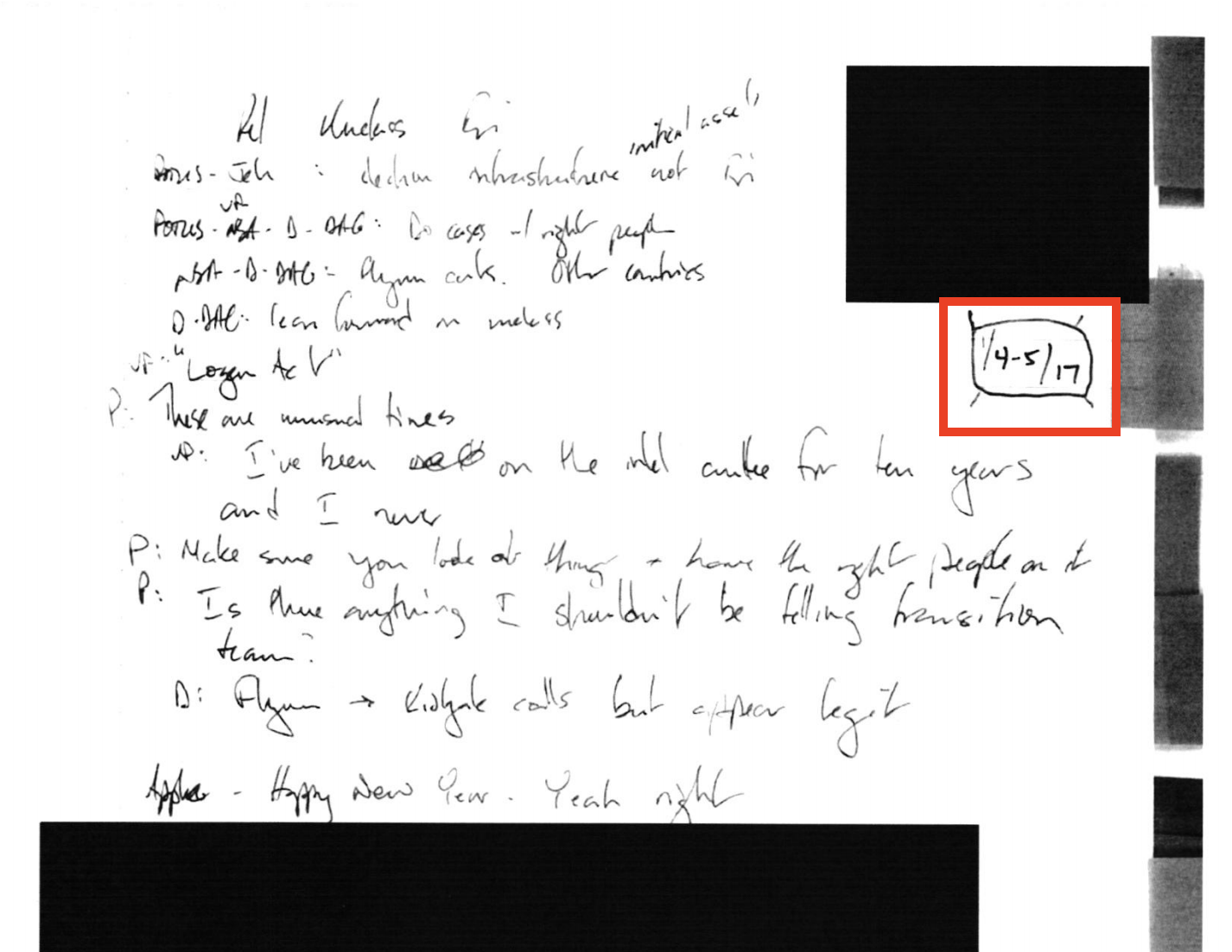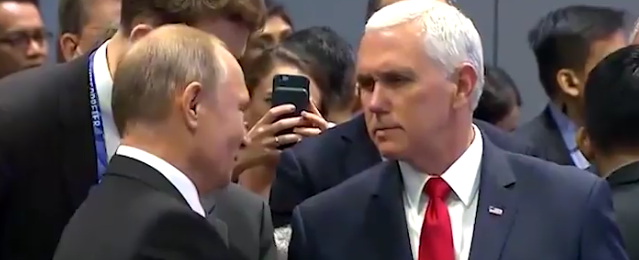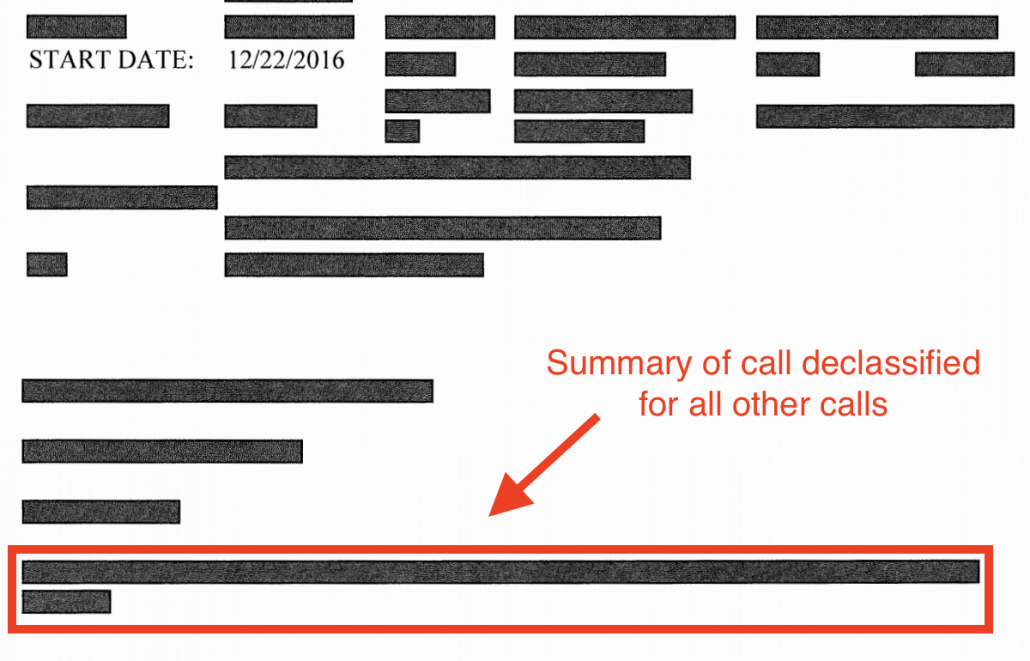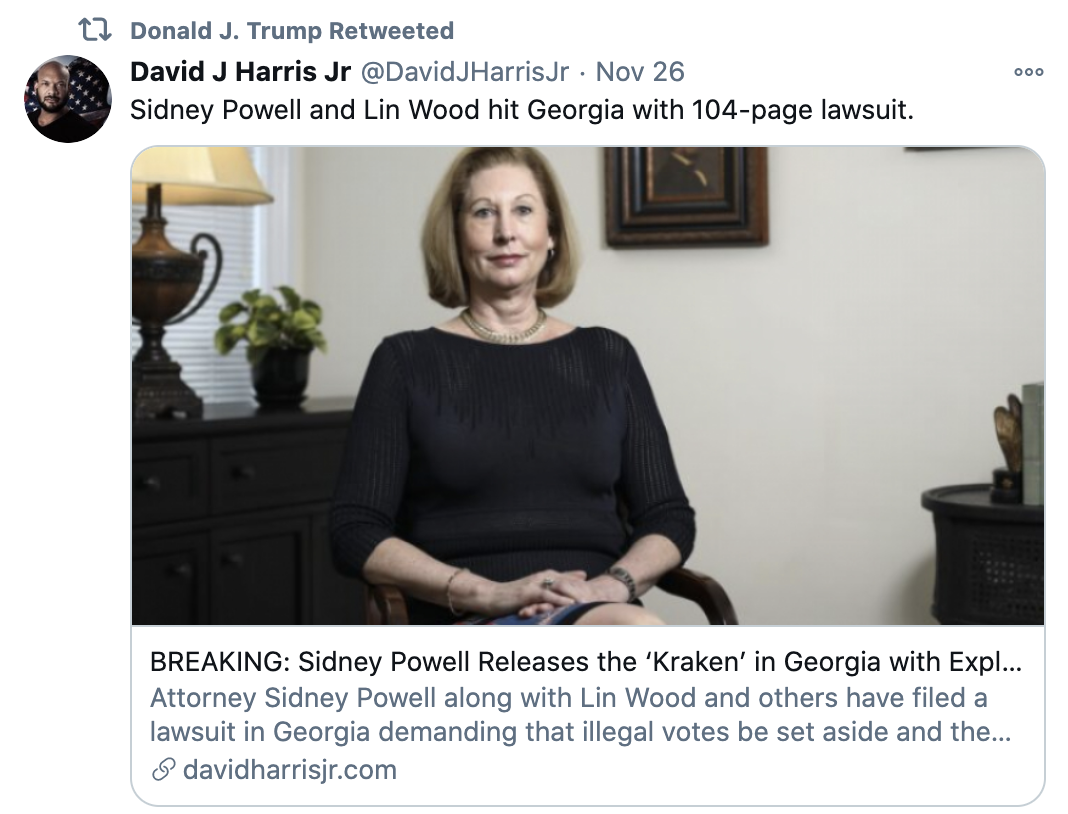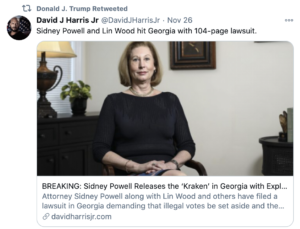Bill Barr could come to regret his neat effort to place a ticking time bomb inside the Joe Biden DOJ, because John Durham has evidence in hand that Bill Barr’s DOJ tampered with documents.
I’ve been thinking … There’s something that doesn’t make sense about Bill Barr’s roll-out of the order making John Durham a Special Counsel. For the better part of a year, Barr has been saying that Durham could roll out actual indictments before the election, since none of the people he would indict were candidates. Yet Barr claimed, in his order, that he decided (not Durham) that, “legitimate investigative and privacy concerns warrant confidentiality” until after the election. And then he waited almost an entire month before he revealed the order. He did so in spite of adopting 28 CFR 600.9, which otherwise requires notice to Congress, to govern this appointment.
Let me interject and say that while Barr’s appointment of a DOJ employee, US Attorney John Durham, violates the Special Counsel statutes, that’s not the authority under which Barr appointed Durham. He did so under 28 USC 509, 510, 515, which is what Mueller was technically appointed under. Thanks to the Mueller investigation and some well-funded Russian troll lawyers, there’s a whole bunch of appellate language authorizing the appointment of someone under 28 USC 515 but governed under 28 CFR 600.9. The unusual nature of the appointment would provide President Biden’s Attorney General an easy way to swap Durham for Nora Dannehy (who as a non-departmental employee would qualify under the Special Counsel guidelines), and given her past involvement in the investigation, it should suffer no loss of institutional credibility or knowledge. But it doesn’t damage Durham’s legal authority in the meantime.
Barr probably lied about the significant reasons to delay notice to Congress. According to the AP, Durham is no longer focused on most of the scope he had been investigating, to include George Papadopoulos’ conspiracy theories and GOP claims that the CIA violated analytic tradecraft in concluding that Vladimir Putin affirmatively wanted Trump elected. He is, according to someone in the immediate vicinity of Barr, focused just on the conduct of FBI Agents before Mueller’s appointment, even though the language of this appointment approves far more.
The current investigation, a criminal probe, had begun very broadly but has since “narrowed considerably” and now “really is focused on the activities of the Crossfire Hurricane investigation within the FBI,” Barr said. He said he expects Durham would detail whether any additional prosecutions will be brought and make public a report of the investigation’s findings.
[snip]
A senior Justice Department official told the AP that although the order details that it is “including but not limited to Crossfire Hurricane and the investigation of Special Counsel Robert S. Mueller III,” the Durham probe has not expanded. The official said that line specifically relates to FBI personnel who worked on the Russia investigation before the May 2017 appointment of Mueller, a critical area of scrutiny for both Durham and for the Justice Department inspector general, which identified a series of errors and omissions in surveillance applications targeting a former Trump campaign associate.
The focus on the FBI, rather than the CIA and the intelligence community, suggests that Durham may have moved past some of the more incendiary claims that Trump supporters had hoped would yield allegations of misconduct, or even crimes — namely, the question of how intelligence agencies reached their conclusion that Russia had interfered in the 2016 election.
We know from the Jeffrey Jensen investigation and documents Barr otherwise released where Barr thought John Durham was heading. There are questions about who knew about credibility problems of Christopher Steele’s primary source Igor Danchenko (though the GOP has vastly overstated what his interview said, ignoring how much of the dossier it actually corroborated, Danchenko’s later interviews, and FBI’s later interviews of one of his own sources). There are some analysts who questioned the viability of the investigation into Flynn; it appears they asked to be removed from the team.
And Jensen, at least, seemed to want to claim that Peter Strzok got NSLs targeting Flynn in February and March 2017 that he had previously refused to approve. Someone seems to have convinced Flynn investigative agent Bill Barnett that those NSLs, which were lawyered by Kevin Clinesmith, were illegal, but given the predication needed for NSLs that seems a wild stretch. Plus, it would be unlikely (though not impossible) for Durham to indict Clinesmith without a Durham-specific cooperation agreement before if he believed Clinesmith had committed other crimes. I mean, it’s possible that Clinesmith, under threat of further prosecution, is claiming that mere NSLs are illegal, but I’d be surprised. Not least because after these NSLs, Strzok worked hard to put a pro-Trump FBI Agent in charge of the Flynn investigation.
Occam’s razor suggests that Durham asked for the special counsel designation because he wants to be permitted to work through these last bits and finish up the investigation, along with the prior authority (which Mueller did not have) to publish his findings.
Occam’s razor also suggests that the reason Barr didn’t reveal this change of status until this week has everything to do with pressure from Trump and nothing to do with investigative equities and everything to do with using this investigation like he has all of his US Attorney led investigations, as a way to placate Trump. Trump has reportedly been complaining that Barr didn’t do more to undermine the election, and so he rolled this out as a way to buy space and time.
Axios reports that it may not work. Trump might fire Barr and replace him with someone who would order that Durham report right away.
Behind the scenes: Within Trump’s orbit, sources told Axios, Tuesday’s revelation was seen as a smokescreen to forestall the release of the so-called Durham report, which senior administration officials believe is already complete — and which Barr had ruled out issuing before the election.
- Another senior administration official disputed that assessment, saying: “The reason the Attorney General appointed John Durham as Special Counsel is because he’s not finished with his investigation,” and that Barr “wanted to ensure that John Durham would be able to continue his work independently and unimpeded.”
- Trump has been ranting about the delay behind the scenes and mused privately about replacing Barr with somebody who will expedite the process. But it’s unclear whether he will follow through with that, per sources familiar with the conversations.
- Barr met with White House chief of staff Mark Meadows and other officials in the West Wing Tuesday afternoon.
Except that doesn’t work. If Trump were to name John Ratcliffe Acting Attorney General (he’d be the perfect flunky for the job), he would be powerless to force Durham to report more quickly. Sure, he could fire Durham, but he’d have to provide notice to Congress, and there’s virtually no remedy Congress would or could offer in the next 48 days. Ratcliffe can’t write a report himself. And the people doing the work for Durham aren’t DOJ employees, so firing them would do nothing to get a report. For better and worse, Barr has ensured that Ratcliffe or whatever other flunky were appointed could not do that, at least not in the 48 days before such person would be fired by President Biden.
Again, Ockham’s Razor suggests that Durham will finish his work and write a public report debunking the Papadopoulos conspiracies, confirming that CIA’s analytic work was not improper, and otherwise concluding that Kevin Clinesmith’s alteration of documents was the only crime that occurred.
More importantly, there’s a problem with Axios’ report, that “Barr had ruled out issuing a report before the election,” and that’s what makes this special counsel appointment more interesting. Barr tried to force Durham to issue a report before the election. That led Durham’s trusted aide Nora Dannehy to quit before September 11, thereby seemingly creating the need for a special counsel designation at that point.
Federal prosecutor Nora Dannehy, a top aide to U.S. Attorney John H. Durham in his Russia investigation, has quietly resigned from the U.S. Justice Department probe – at least partly out of concern that the investigative team is being pressed for political reasons to produce a report before its work is done, colleagues said.
[snip]
Colleagues said Dannehy is not a supporter of President Donald J. Trump and has been concerned in recent weeks by what she believed was pressure from Barr – who appointed Durham to produce results before the election. They said she has been considering resignation for weeks, conflicted by loyalty to Durham and concern about politics.
[snip]
The thinking of the associates, all Durham allies, is that the Russia investigation group will be disbanded and its work lost if Trump loses.
And Barr himself had, for months, been saying that he would shut down Durham if Trump lost. Yet here we are, after the election, learning that Barr has provided Durham additional protections.
That’s all the more interesting given what Barr did after Dannehy quit in the face of pressure to issue some kind of report before the election. First, he gave a screed at Hillsdale College that pretty clearly targeted Dannehy, among others. Then, Barr attempted to let Jeffrey Jensen release an interim Durham report himself.
Less than a week after Dannehy quit, Jensen’s team interviewed Bill Barnett, someone who would be a key witness for any real Durham investigation of early actions by the FBI. The interview was clearly a political hack job, leaving key details (such as the role of Flynn’s public lies about his calls with Sergey Kislyak in the investigation) unasked. Barnett’s answers materially conflict with his own actions on the case. He was invited to make comments about the politicization of lawyers — notably Andrew Weissmann and Jeannie Rhee — he didn’t work with on the Mueller team. And he claimed to be unaware of central pieces of evidence in the case.
It took just a week for the FBI to write up and release the report from that interview, even while DOJ still hasn’t released a Bill Priestap interview 302 that debunked a central claim made in the Flynn motion to dismiss. And the interview was released in a form that hid material information about Brandon Van Grack’s actions from Judge Sullivan and the public.
But that’s not all. A day earlier prosecutor Jocelyn Ballantine sent five documents to Sidney Powell:
- The altered January 5, 2017 Strzok notes
- The second set of altered Strzok notes
- The altered Andrew McCabe notes
- Texts between FBI analysts
- A new set of Strzok-Page texts, which included new Privacy Act violations
All were packaged up for public dissemination, with their protective order footers redacted. There were dates added to all the handwritten notes, at least one of which was misleading. The Strzok-Page texts were irrelevant and included new privacy violations; when later asked to validate them, DOJ claimed they weren’t relying on them (which raises more questions about the circumstances of their release). There’s good reason to believe there’s something funky about the FBI analyst texts released (indeed, as politicized as his interview was, Barnett dismissed the mistaken interpretation DOJ adopted of their meaning, that the analysts were getting insurance solely because of the Russian investigation); DOJ made sure that the identities of these analysts was not made public, avoiding any possibility that the analysts might weigh in like Strzok and McCabe did when they realized their notes had been altered.
One of those alterations would come to serve as a scripted Trump attack on Joe Biden in their first debate. In a September 29 hearing, Sidney Powell admitted meeting regularly with Trump campaign lawyer, Jenna Ellis, and asking Trump to hold off on a Flynn pardon, making it clear that this docket gamesmanship was the entire point.
And then, on October 19, Durham got Barr to give him the special counsel designation that would give him independence he had not had during 18 months of Barr micromanagement and also ensure that he could remain on past the time when Barr would be his boss.
Days later, on October 22, DOJ wrote Sidney Powell telling her they were going to stop feeding her with documents she would use to make politicized attacks.
Let’s assume for a minute that Durham was, in good faith, pursuing what the FBI was doing in the spring of 2017, an inquiry for which Barnett was a key — and at that point, credible — witness. That investigation was effectively destroyed with the release of the politicized Barnett interview report. Any defense attorney would make mincemeat of him as a witness.
Which is to say that Barr’s effort to let Jensen release the things that Durham refused to before the election damaged any good faith investigation that Durham might have been pursuing. And that’s before DOJ got caught altering documents, documents for which Durham has original copies. It’s not clear whether Durham is watching this docket that closely, but if he is, he knows precisely what, how, and to what extent these documents have been altered. And he probably has a good sense of why they were released in the way they were.
Again, Ockham’s Razor says that Durham will just muddle along and after a delay release a report saying he found nothing — which itself will be incendiary enough to the frothy right.
But by incorporating 28 CFR 600.4 into the scope of his special counsel appointment clearly allows him to investigate any attempts to interfere with his investigation.
federal crimes committed in the course of, and with intent to interfere with, the Special Counsel’s investigation, such as perjury, obstruction of justice, destruction of evidence, and intimidation of witnesses;
It’s likely those pre-election antics did interfere with the investigation. And even if Durham hasn’t thought that through yet, it’s possible that Michael Horowitz will inform him of the details.

